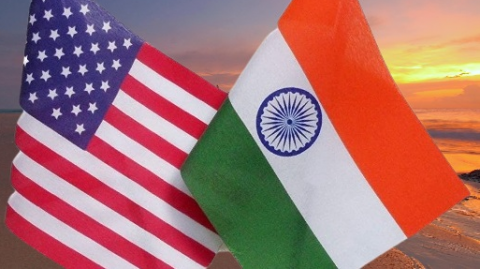What made you immigrate to the United States?
I have always been a history buff, and even had dreams of teaching history. I earned my bachelor’s degree in history in India, after which I planned to complete a master’s program and then get a Ph.D. in history. Before I could do that, I happened to go for a job interview with a huge company operating worldwide in over a hundred countries. The company was looking for management trainees – after one year of training, one would start working as a junior executive. I got a job with the marketing division, and within a year, I was handling marketing and advertising for two product groups. Life was good - the salary & perks were great, and I liked marketing. So why come to the USA? Though I had been trained to handle marketing programs for the company and did my job well, it always bothered me that I did not have any formal college education in marketing. I decided to earn a master’s degree in marketing, and the U.S. was the right place for this. So, I quit my job and came to the U.S. over 40 years ago.
Who met you when you arrived, and what did you do that first day?
My brother met me at the airport when I arrived. The first day was spent just talking about the new experience of getting a college education in marketing in a new country. I was lucky because I was staying with him, and he had also earned a master’s degree in marketing in the U.S. So, on my first day, I spent a lot of time talking to him about my master’s program and courses I would pick during the first semester.
In the days that followed, how did you feel about the city you arrived in?
I had no time to explore the city where I went to college, at least for a couple of months. I lived in a quiet suburb. American suburban living was a unique experience though. The town was small and very quiet. I hardly saw anyone outside, and residential neighborhoods looked almost deserted. My university was in Chicago. As the second-largest city in the U.S., it offered the hustle and bustle of city life and the noise I grew up with in native India. Not exactly the same, but a lot like where I came from than the small, quiet suburb near Chicago where I lived. Chicago, like all American cities, was a good example of urban planning. This was possible because the city is not that old. It was a wilderness outpost of about 300+ residents 200 years ago. I grew up in a town in India, which is one of the oldest continuously inhabited places in the world (founded 2,500 years ago). Compared to that town in India, everything looked “new” and “well-planned” in Chicago. One thing I did like about the city was the large number of restaurants serving food from different parts of the world. I particularly liked the “Little India” where Indian restaurants and stores were located - going there was like visiting India.
How was your process of settling down in the first few months – both positive and negative?
Settling down is always tough for most people when they come to a new country. We meet different people and experience a different culture. There is a lot to learn and understand. Fortunately for me, the process of settling down was easy because I lived with my brother for a couple of years. He was there to show me the ropes, so “American living” was not really a challenge. On the positive side, most people in the U.S. are very friendly, and they are always willing to talk and help a newcomer from another country. On the negative side, coping with the chilling temperatures and snow in the Midwest was tough for people like us who grew up in a tropical climate. But when you are younger, you adjust fast and it becomes easier.
Looking back to these initial days, what advice would you give to other newly arrived immigrants in the United States?
For those who come from India, I have two suggestions:
1. Weather: Pay close attention to weather reports. Growing up in the tropical climate of India we never checked weather reports before venturing outdoors in the morning because it was not necessary. Unlike India, there can be a lot of fluctuations in weather patterns in the U.S. on a daily or even hourly basis, especially in the cold season in certain parts of the country. So listening to weather reports before leaving home is important so that one is dressed right to face the outdoors. It becomes more important when driving. Some of us don’t realize how bad it can be. I have seen people face major problems because they had no idea about how weather was going to change in their area.
2. Socializing: These days, there are Indian groups everywhere. Connecting with people of Indian origin or fellow immigrants is easy (thanks to social media), and it is also a good antidote to homesickness. But making friends with people outside Indian groups is important, too, because it promotes a sense of belonging and makes it easier to become a part of the social fabric of your new country.
* The contributor of this story has asked that their name be withheld.


